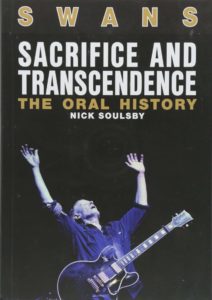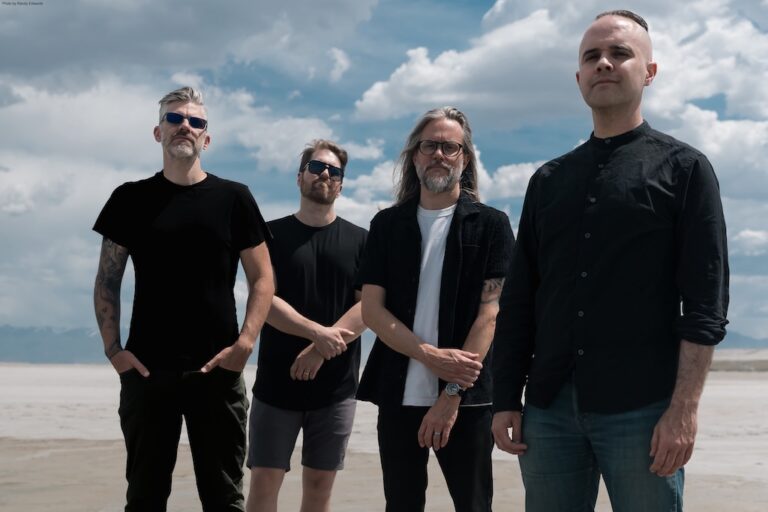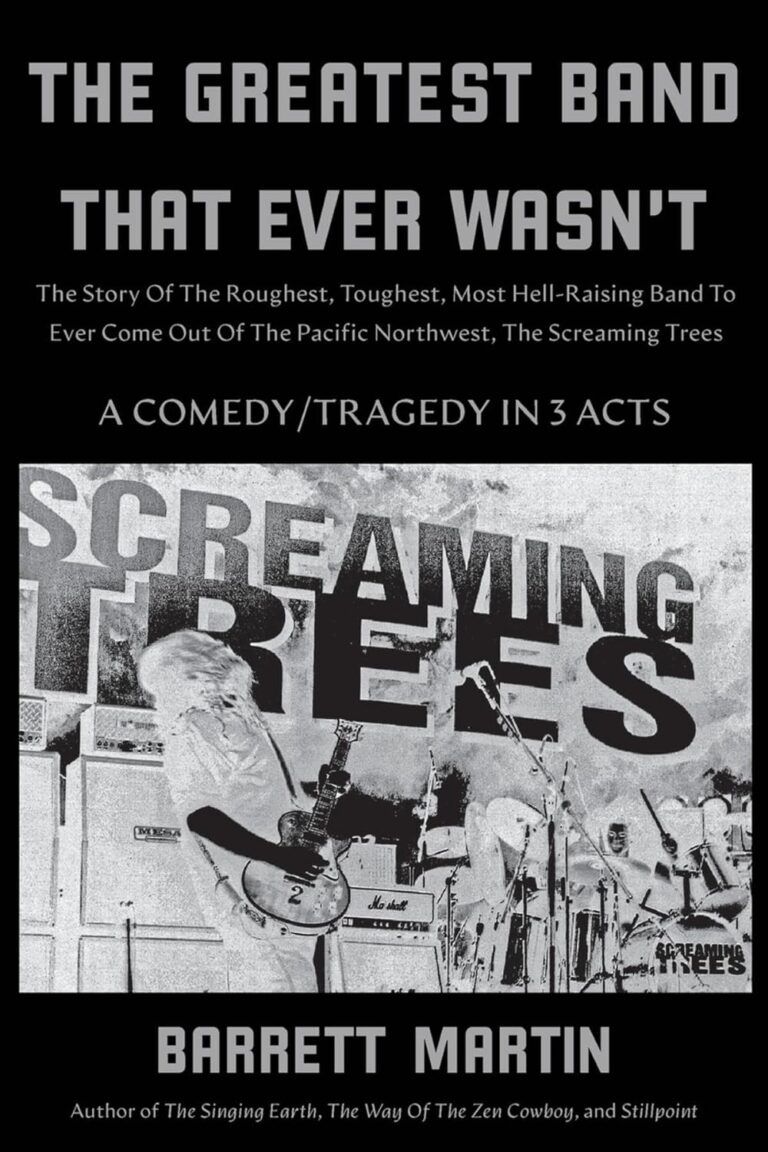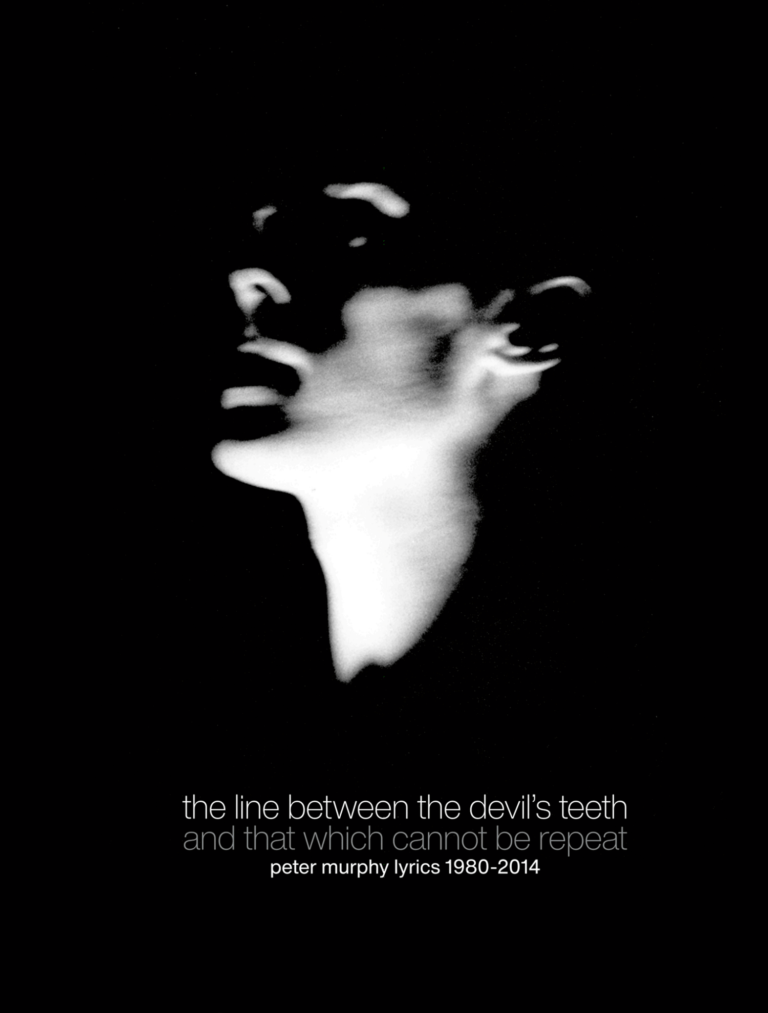
You don’t feel ambivalent about Swans. You don’t only own one of their albums – a passing fancy never to be repeated – although it is conceivable that you may favour one era of the band over another. You may not exactly love the band, either. Like a psychotic family member to whom you’re committed (but never fully sure of their intentions), you live your life alongside Swans, drawing inspiration and strength from their evolution whilst keeping a weather eye on their hands, just in case they’re carrying a sharp object. It’s a difficult thing to explain because, in many ways, latter day Swans are love – the embodiment of raw passion condensed into tightly-wound sonic vignettes that drive out reason in their quest for perfection of expression – but it’s a love that carries baggage and woe betide the listener who mistakes the moment of calm that precedes the oncoming storm.
Expressing the history of such a band is a daunting task. Despite the near-cult following the band have attracted over the course of their storied history, the revolving cast of members has remained enigmatically quiet upon the subject. Moreover, with so many participants, one person’s truth (even Gira, the one constant amidst the turmoil), could never hope to represent the reality of Swans and so it is that author Nick Soulsby has undertaken the labour-intensive option of interviewing everyone willing to speak about their experiences of the band. The result, based on 125 original interviews, is a book written with an intensity that matches the music it encapsulates; the first-hand accounts capturing the incredible experience of being trapped inside Gira’s mincing machine at any given point in time. Nick, who has good experience of this sort of thing (he previously authored books on Thurston Moore and Nirvana), neatly dovetails the interviews, so that one voice never drowns out another and experiences (inevitably filtered through the lens of personality) are given as much basis in fact as anyone could hope to achieve at this remove. The participants, as you might imagine from a band such as Swans, are uncommonly insightful and they’re given plenty of space to discuss the nature of the band, their contribution to it and their experiences with the fiercely driven Gira. Impressively, the interviews come across as relaxed and informative and it is notable that, given the maelstrom in which the band existed, there is remarkably little bitterness from the participants (occasional regrets notwithstanding), even at points when Gira is represented at his most irascible. The result is a book that is as easy to lose oneself in for hours as it is to simply pick up and thumb through and, although how you choose to experience the book is up to you, I found dimming the lights, placing a slab of Swans vinyl on the deck and letting the story flow proved the most effective, the every day drifting away as the voices of the past rose up from the pages.
Inevitably, it is Gira who looms large throughout the text, for the story of Swans is the story of Gira. Not that this is to suggest that the band is some sort of bastardised solo project. Gira would be aghast at the thought and the contributions of the other members (especially Jarboe) are immense and clearly documented here. Nonetheless, Swans are Gira’s vision and the goals the band strove for, were his goals. As a result, a picture emerges of a man capable of kindness and generosity, but also capable of a lack of empathy bordering on cruelty when directing the participants within the band he loved so much. A hard task master, a prolific writer and a challenging creative partner Gira does not dominate the word count, but he is everywhere regardless. Therefore, it is a measure of the balanced approach Nick has taken that the contributions of the other members are made clear. Jarboe, in particular, is rendered as a pivotal force within the band (no mean feat given her natural reticence on the subject), and as members come and go, so the sonic character of the band is seen to change with each alteration to the line up. In a rare display of mutual recognition, the various members of the band seem as respectful of their peers as Gira does of the people with whom he worked, and a sense of fragile unity is presented, each line up operating as a coherent whole – under Gira’s direction, perhaps – but a living breathing beast in its own right. Such insights are valuable and go some way to explaining the remarkably varied discography the band amassed. It also adds considerably to the narrative that the final chapters end not with dissolution, but reformation, and the final words (delivered by Jennifer Gira) are words full of love and hope – a most fitting conclusion indeed.
Sacrifice and transcendence is a beautifully printed book with full-colour photos detailing the various stages of Swans and a decent biography section at the end for those who want to double check who is speaking. The only thing lacking from this otherwise exhaustive collection is a concise discography which, given the considerable wealth of material the band released, would have been the icing on the cake. That omission aside, this is a massively detailed, beautifully researched and very human look at Swans and the title really says it all. By gathering together so many voices, Nick captures the pride, passion, blood and sweat that Gira and his colleagues poured into Swans and, in looking at the band’s triumphant return, the story also carries with it the same spirit of redemption that has characterised Swans’ latter-day musical output. As such, it is essential reading and, like all great works, it successfully enhances the experience of listening to the band it depicts. 9.5



